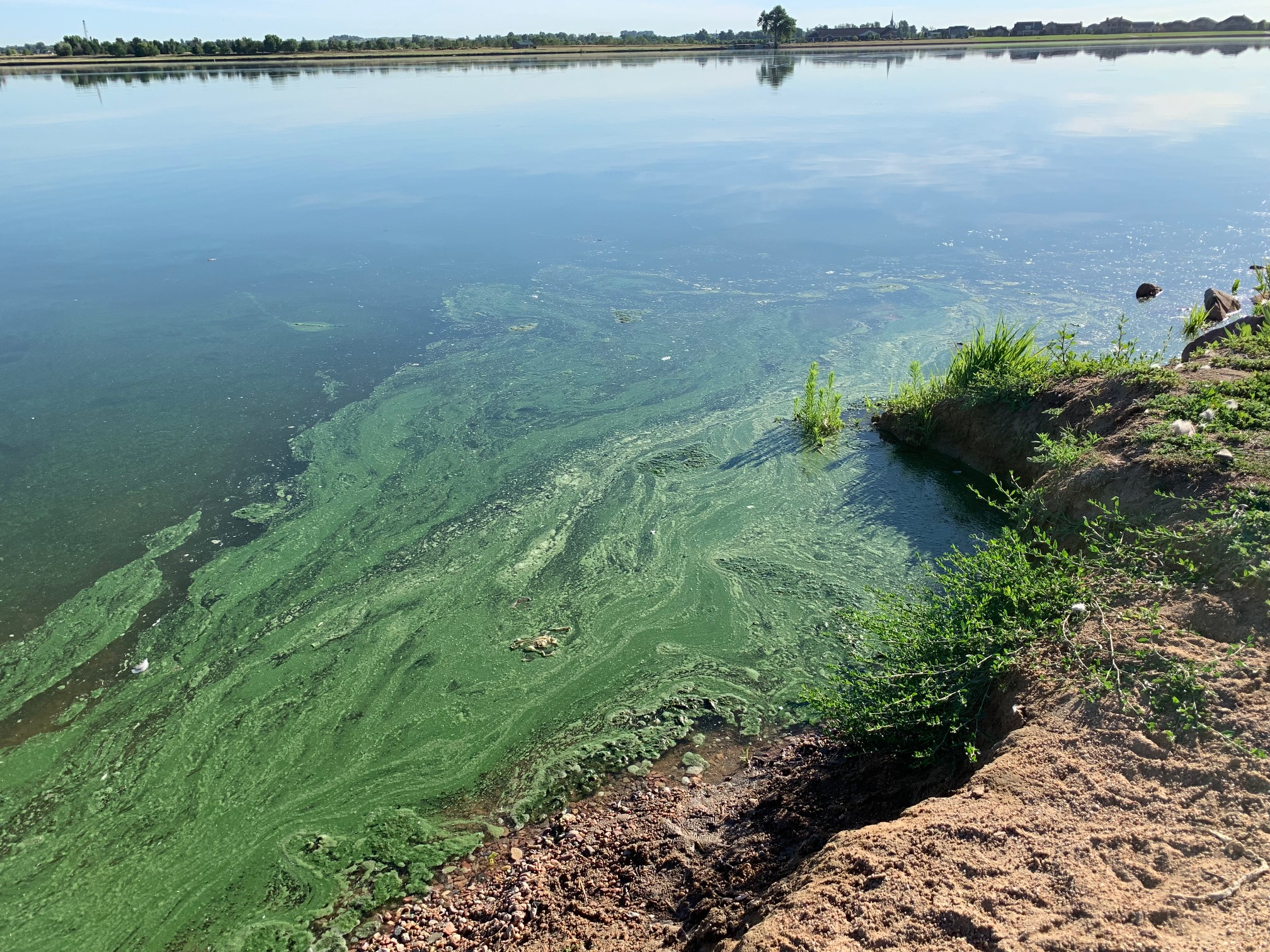
Colorado Parks and Wildlife officials are limiting paddleboarding, swimming and other in-water activities at at least four of the state’s most-visited recreational reservoirs due to toxic blue-green algae blooms.
Managers at Barr Lake and Cherry Creek reservoirs in Metro Denver sectioned off parts of the lakes due to blooms earlier this week. In Southern Colorado, Road Canyon and Deweese reservoirs have been off-limits to swimmers and pets for several weeks.
“Temperatures are hot and water is stagnant, which means our toxin levels are high,” said Michelle Seabert, park manager at Barr Lake State Park. “People need to be algae aware.”
The algae growth is pretty typical for this time of year, when hot temperatures fuel the growth of cyanobacteria living in waterways, Seabert said.
Wildlife managers say they’re testing water levels in all state reservoirs and expect to issue more warnings in the weeks to come. At least eight other bodies of water around the state have reported blooms that are being tested, according to an online tracker run by the Colorado Department of Public Health and Environment.
Blue-green algae often forms in stagnant areas of shallow water and “looks like paint” while floating on the water’s surface, Seabert said. It’s fueled by hot weather and high levels of nutrients in the water, such as phosphorus and nitrogen.
Green, chunkier algae that floats in deeper water is usually harmless, she added.
The toxins in the blue-green species can hurt animals and humans. If ingested, it can damage a person’s skin, liver, as well as digestive and neurological systems.
“It can make dogs very sick and even cause death,” Seabert said.
If you or your pet come in contact with algae, it’s best to wash off quickly and contact your health care provider.
Peak algae season typically runs through the end of August and early September, according to Colorado Parks and Wildlife. Activities like boating and hiking around reservoirs are still permitted.









